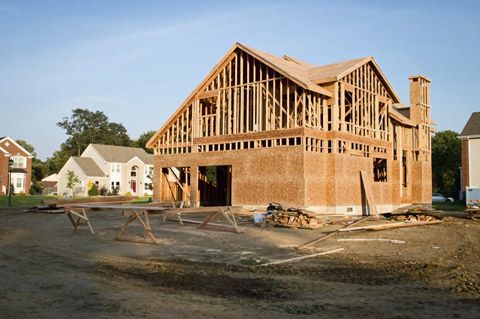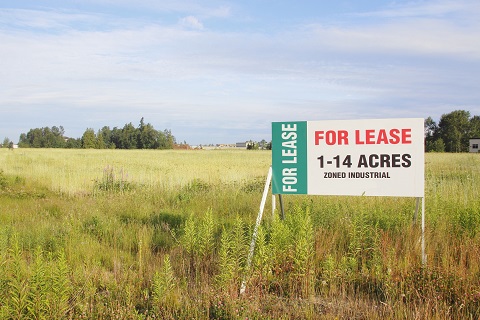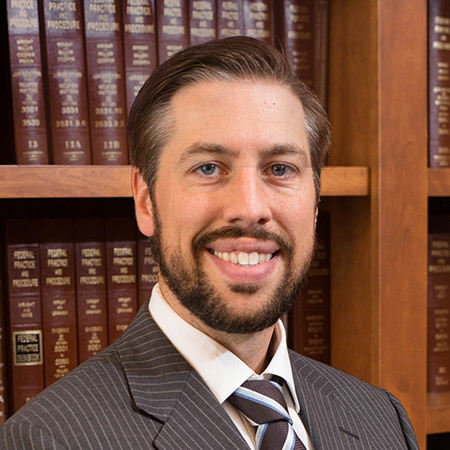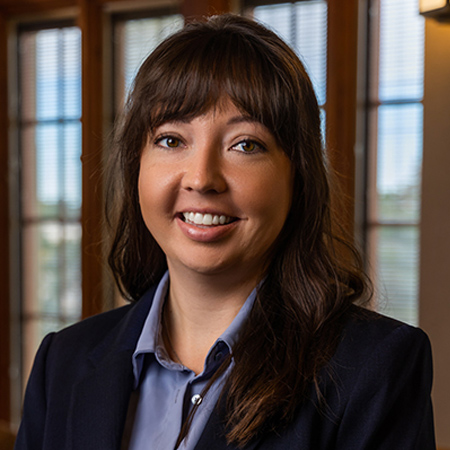Milwaukee Land Use & Zoning Attorneys
Legal representation for development, regulations & property disputes

Our experienced attorneys will help resolve disputes or take care of all the details involved in land use & zoning approval.
Land use and zoning laws vary from town to town, and even neighborhood to neighborhood. The legal team at Niebler Pyzyk has assisted developers, homeowners, and even local governments in settling land use and zoning disputes. Through decades of successful client representation, we’ve developed lasting relationships with local governments and developers, ensuring fast and easy dispute resolution.
Our attorneys also have experience negotiating and litigating condemnation cases in Wisconsin, as well as across the U.S. at the federal court level.
Contact Zoning Law AttorneysGovernment regulation & approvals
If you need governmental approval to proceed with your planned use of a property, we will handle all of the legal details, including representing you in front of zoning boards, planning commissions, and other governing bodies.
From obtaining and closing a commercial loan to negotiating leases and analyzing environmental issues, our law firm will help you take the necessary steps in acquiring your desired development site.
Zoning & land use litigation
We can help if you are involved in a zoning or land use violation or other ordinance enforcement proceeding involving a property you own or operate.
Our land use & zoning attorneys assist in establishing and dealing with subdivision restrictions, architectural review, and other community association requirements and the disputes that can follow. We also represent commercial clients in negotiating commercial leases and disputes.
Small businesses wishing to expand in their current location often find themselves in conflict with zoning laws, due in no small part to the complexities of zoning laws in many municipalities. We'll review your plans and the current zoning laws to help you avoid legal pitfalls and unnecessary expenses.
Property development lawyers
Niebler Pyzyk construction law attorneys also establish and deal with specific challenges involving real estate development and ownership, and are ready to assist in all aspects of condominium development, management and sale.
Real estate litigation attorneys
Our attorneys help property owners resolve property disputes and achieve their objectives with a proactive approach to problem-solving. We provide practical legal advice and cost-effective strategies to resolve disputes associated with real estate transactions, land disputes, and property line disputes.
Conditional use permits in Wisconsin
What is a conditional use?
Simply put, a Conditional Use (sometimes called a Special Use) is a use that would not otherwise be permitted by right under the current zoning for the land in question. Municipalities determine zone permitted land uses by dividing the county or municipality into several, smaller districts. The lands within these districts are zoned according to the uses most appropriate for the land and its location.
The zoning assigned to each parcel of land within the district has a list of “by-right” uses, which entitle landowners to use their land in certain ways under protection of the law. There are also “conditional uses,” or uses that fall just outside of the municipality’s by-right list.
When do I apply for a conditional use?
To apply for a “conditional use” for your land, one must obtain permission from the local governing body (often a board or committee) for the conditional use sought. However, whether or not permission is granted depends on whether or not the zoning body considers your request “compatible” with the land you intend to use and the zoning that overlays it.
The zoning board can oppose and deny requests despite honest intention or reason, which can lead to frustration for many residents. The key to an approved request: Hiring a lawyer when requesting a Conditional Use.
Why should I get a lawyer when requesting a conditional use?
- Seemingly simple permit requests oftentimes deal with complex legislation.
- An attorney can assist in preparing an application for a conditional use.
- Lawyers understand the complexities associated with a conditional use and can converse and communicate favorably with zoning boards because they have the knowledge to effectively communicate on the same level with the board.
Zoning variances
What is a zoning variance?

Whether you want to gain or fight a zoning variance, our experienced attorneys can help.
Municipalities determine zone permitted land uses by dividing the county or municipality into several, smaller districts. The lands within these districts are zoned according to the uses most appropriate for the land and its location.
The zoning assigned to each parcel of land within the district has a list of “by-right” uses, which entitle landowners to use their land in certain ways under protection of the law. A zoning variance seeks permission to deviate from the restrictions associated with the zoning that applies to the property in question.
Applying for a zoning variance
Each county and municipality differ in the criteria necessary to successfully achieve the variance requested. A request for a variance can often be complicated and frustrating. It is important to review and understand what criteria needs to be met before attempting to gain a variance for your property.
Why should I get a lawyer when requesting a zoning variance?
- Zoning variance approvals are sometimes politicized and contentious and have the potential to be influenced by community politics, environment, and even personal relationships.
- Vaguely-worded legislation provides room for zoning boards to give a decision based on their discretion but also leaves space for lawyers to help them understand why the variance would be acceptable.
- Lawyers understand the complexities associated with a request for a variance and can converse and communicate favorably with zoning boards because they have the knowledge to effectively communicate on the same level with the board.
A lawyer can act as a mouthpiece for your request by utilizing expertise in zoning and municipal law.
Contact Land Use AttorneysProperty easements rights in Wisconsin
What is an easement?
An easement gives someone the right to use someone else’s land for a designated purpose. The extent of easement rights is situational, but all involve the use of someone else’s land.
Are there different kinds of easements?
There are multiple types of easements. But some of the most common ones deal with one or more of the following:
- Utility Easement: If someone lives near power lines, water lines or another type of community utility, a utility company or municipality could enter your land for access to the utility hub.
- Affirmative vs. Negative Easements: This kind of easement either allows or prohibits the use of another’s property for a specific purpose.
- Prescriptive Easement: If someone uses another’s land against the permission of the landowner for a period of years, an easement may be granted. In Wisconsin, the behavior must continue on an open and notorious basis for at least 20 years in order to potentially qualify as a prescriptive easement.
The value of a lawyer for easement requests/oppositions
Whether you oppose an easement or wish to request one, a property rights lawyer can be instrumental in your success. Allowing a lawyer to assist an easement case has multiple benefits:
- The detailed knowledge lawyers possess greatly increases your chances of winning your appeal or opposition.
- Hiring a lawyer protects your interests should the appeal or opposition turn into a dispute.
- Easement laws are often convoluted. Navigating your case can be difficult and time-consuming without legal help.
Property disputes & property lines in Wisconsin

Our attorneys have in-depth understanding of Wisconsin property laws & can help resolve property line disputes.
A property dispute can be any type of legal dispute involving real estate.
Examples of property disputes our lawyers can advise on:
- Property line/boundary disputes
- Landlord/tenant disputes over property damage
- Homeowner/developer disputes over repair costs in new construction homes
- Disputes between homeowners and government agencies over a utility easement
- Disputes between creditors and mortgage lenders over foreclosure and proceeds
- Homeowners insurance claim disputes
- Real property ownership disputes
- Land use & zoning disputes
In some cases, especially with property or land disputes involving family or neighbors, dispute resolution in the form of mediation, arbitration or settlement negotiation can effectively resolve the issue while minimizing expense and disruption to your life.
Our real estate litigation attorneys have in-depth understanding of Wisconsin property law and can help you decide whether it makes sense to pursue a courtroom solution or seek an alternate resolution.
No matter what form of legal action you decide to take, our property dispute attorneys provide effective representation until we arrive at a successful outcome.
Wisconsin adverse possession law
Adverse possession, sometimes known as “squatters’ rights” is when a person who does not own a legal title to the real estate attempts to claim legal ownership. Adverse possession claims are based on a history of occupying the property for a significant period of time without the legal owner’s permission.
Adverse possession is a very old doctrine, but adverse possession disputes still occur today. Adverse possession conflicts can arise in virtually any context involving real estate and can be very complicated.
Under Wisconsin law, adverse possession allows property ownership to be determined by possession rather than title if certain criteria are met. In most cases, an adverse possession claim must prove uninterrupted adverse possession of the real estate in question for a minimum period of 20 years which could vary depending on the circumstances involved.
There are also several criteria that must be met, and exceptions for real property belonging to a municipality or other government body.
Our experienced property lawyers advise our clients on proving, defending or avoiding adverse possession disputes. The history of Wisconsin’s adverse possession laws, amendments, and newly created real estate statutes can make this type of claim very complicated. To protect your property rights and best interests, schedule a consultation with an attorney today.
Land use attorneys serving Southeast Wisconsin
We'll help you navigate Wisconsin’s diverse land use and zoning laws. If you need to properly establish a mixed-use zone, or the city is affecting your home or business, Niebler Pyzyk will help. Contact us online or call today to schedule a consultation.
Contact us online to schedule a consultation with a land-use attorney.
We serve the greater Milwaukee area from our convenient Menomonee Falls location including Waukesha, Brookfield, Glendale, Mequon, Germantown, Grafton, Cedarburg, Wauwatosa, Hartland, Pewaukee, Sussex, New Berlin, West Allis, West Bend, Port Washington & the surrounding communities.







